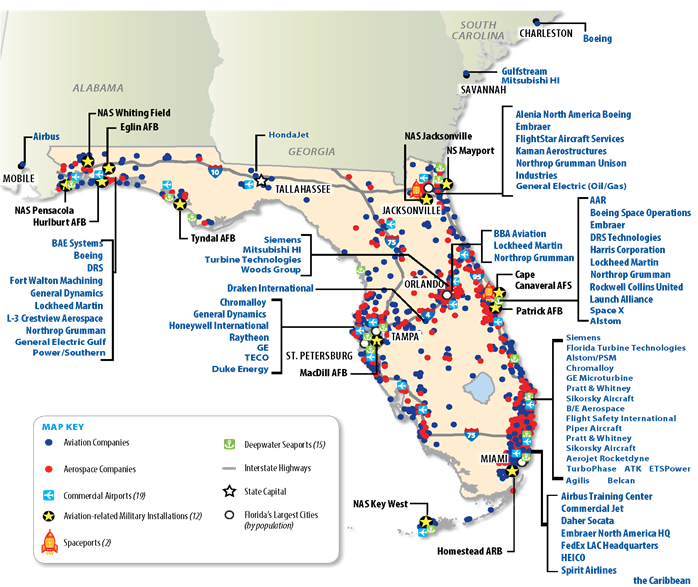AI/ML in CAE: Job Postings, Career Advice, & Growth Talk
I'll try to make this a monthly thing-- open job posting URLs, "breaking into AI" career oriented suggestions, and answers to mentorship questions I get asked literally every single day in DMs :)
I took a variety of those ‘what color is your parachute’ type tests growing up, and leadership was always among the highest ranking things that resonated with me. Upon self reflection, probably a big part of that is that I love seeing the team succeed and connecting with people. In this capacity, I will try to dump helpful information, thoughts, and job postings here for all to consume in hopes that it helps someone on their journey. I don’t promise it will be life changing, but I have been asked ‘how do I get into AI as a mechanical/aerospace engineer’ (conservatively) over 100 times. So hopefully I can share something useful with you.
In my experience, usually there are a few key elements in these types of mentorship conversations:
What’s more important to you: engineering or AI?
What companies should I apply to work for?
What types of jobs should I apply for?
What’s more important to you: engineering or AI?
This is a good place to start in your job search, because it’s a big bifurcation — do you want to work in AI/ML bad enough that you’d forsake your background in mechanical/aerospace engineering to do so?
There are no wrong answers here, but the skills you’d need to pursue/master are very different depending on what answer you pick. To prepare as efficiently as possible, I like to start with this question to avoid wasting your time. Personally, I feel it can be overwhelming, so I think this helps make things more bite-size.
If you answered ‘yes’ above, then you will now get in the mindset of competing with all the computer science majors in your interviews, which means you need to get some basics in those things they learned at university which engineers did not.
I interviewed at Meta for a software developer role — here’s a comprehensive prep guide they provided which covers every step of the process. It can quickly give you a sense of the prep work you’ll need to do.
Further, I loved these two rather comprehensive courses (do #1 before #2):
If you answered ‘no’ above, then you are like me (though it’s a close call for me personally). I’m not so quick to leave engineering. I guess that is what taking a dozen classes about fluid mechanics classes will do to you 😂. Therefore, your approach to finding a job in an engineering/science based industry will look much different. You’ll be competing against people who come from similar backgrounds as you, with exception to some computer science majors, depending on the role in question.
I see a few common pathways to land your AI/ML role on this track:
You enter the job market working for an engineering company as a ‘traditional’ engineer. Then, with time, you gradually prove your credibility on AI/ ML competencies through ‘extra curricular activities’. Whether it’s voluntary projects that are AI-based which you can sign up to participate in, research/projects done in your free time to supplement your current work area, or becoming buddies with colleagues who focus on AI, you can accumulate experience on AI/ML topics gradually over time. Then, with patience, a time may come where you will have an opportunity to shift your job focus within your company (e.g. AI/ML roles open up, new projects on AI kick off, etc.). This is definitely a conservative track; you enter the workforce in an area you already know you like, you don’t have to wait for AI/ML roles to emerge but rather you ‘grow’ into them. In my experience, good companies want to retain good employees, and therefore you can build up trust with management to support you to learn more about AI/ML and grow in this direction over time.
You target a company that has mechanical/aerospace/chemical (etc.) engineers working alongside computer science graduates, and you target your sites on the software side of things. Especially in larger companies, a ton of software developers and computer science folk will be needed to facilitate their company activities alongside the mechanical and aerospace engineers. Your ‘value pitch’ to the hiring team is that you have built up skill in full on the computer science side, but also know a lot about the application-side and therefore can work seamlessly with the engineers. For example, you have a bachelors in aerospace and work as a machine learning engineer at a major aerospace company (Airbus, Boeing, GE, etc.). Your pitch here is that you understand the BUSINESS KNOWLEDGE inherent to the data you are modeling, and therefore can work in better lock-step with the designers and not make foolish modeling mistakes that violate basic physics principles. After all, a literacy in the business knowledge is so critical to machine learning projects.
What Companies Should I Apply to Work For?
If you answered ‘yes’ to the above question, stating you would be willing to work in an industry outside that of mechanical or aerospace applications, then you will have a lot of options for companies to work at. I won’t dwell on this one, because it’s more ‘mainstream’ at that point in terms of finding a job with fewer limitations on available companies/markets.
However, if you answered ‘no’ above, and you want to stay intact with your mechanical/aerospace engineering roots, I’ll give a framework below with some specific companies and job postings.
Without trying to overgeneralize/simplify, I think one way to frame it is that you could find a job at a company that produces ‘the tools’ that other companies use, or you could get a job at an OEM that buys/consumes those tools. For example, a company like Siemens Digital Industries Software that makes simulation software, or at a company like General Motors that buys that Siemens software to design their cars. I am speaking rather casually to say ‘the tools’, but don’t limit yourself to simulation. It could be equipment related to wind tunnels testing or any sort of physical measurement, cloud services, hardware, IoT, IT/data services, or many other things. I’ll stick to simulation below, but again don’t narrow your focus any more than you’d like to.
Simulation Software Vendors
Disclosure- I work for Siemens Digital Industries Software and some of the links below are referral links (which we are encouraged to post on social media and spread generously). I will not include links to our competitor’s job portals, but I will openly acknowledge them as players in the market so that you could pursue jobs with them. I don’t feel there is a real conflict of interest here, but I wanted to at least be transparent.
Siemens has many business units, so you’ll need to refer to different hiring portals for each. For the digital industry one, there are a number of open positions related to AI/ML (available as of this 7pm EST Feb 8th):
AI DEVELOPER - LLM APPLICATIONS, NLP, ONTOLOGIES AND KNOWLEDGE GRAPHS
AI APPLIED SCIENTIST - CLOUD & INDUSTRIAL AI
SOFTWARE ENGINEER - CLOUD & INDUSTRIAL AI
SENIOR SOFTWARE ENGINEER - CLOUD & INDUSTRIAL AI
SOFTWARE ENGINEER II - CLOUD & INDUSTRIAL AI
STRATEGIC STUDENT PROGRAM: CATAPULT HLS AI INTERN (DDCP, SUMMER 2025)
QA ENGINEER - AI APPLICATION (EDAI)
AI AND SIMULATION ENGINEERING INTERN
PHD POSITION: MACHINE LEARNING & AI METHODS FOR SOLVER ACCELERATION AND IMPROVEMENT -
Aside from Siemens, some other major simulation software vendors you could job hunt for are:
ANSYS, Inc.: Simulation tools (CFD, FEA, electromagnetics, and more).
Dassault Systèmes: Through its SIMULIA brand (with Abaqus, XFlow, Tosca, etc.) and CATIA/SolidWorks, it offers integrated simulation and design solutions.
Altair Engineering: Known for its HyperWorks suite (including AcuSolve for CFD and OptiStruct for FEA) and much more.
Autodesk, Inc.: Provides Autodesk CFD, Inventor Nastran, Fusion 360 simulation, and more.
MSC Software: Offers MSC Nastran, MSC Marc, and related CAE solvers for structural and dynamic analysis.
COMSOL Multiphysics: platform for multiphysics simulations that combines finite element analysis with a flexible application builder.
ESI Group: Specializes in virtual prototyping and simulation for manufacturing processes (crash, stamping, and more).
LS-DYNA (LSTC): Used for explicit dynamics, impact, crash, and highly nonlinear simulations.
SimScale GmbH: A cloud-based simulation platform that offers CFD, FEA, and more accessible via a web browser.
OnScale: Cloud-based multiphysics simulation solution that emphasizes ease of use and scalability.
MathWorks (Simulink)
Companies which I can list that focus more on CAD/direct design/PLM capabilities:
Siemens PLM (Design, Manufacturing, and Lifecycle Management)
PTC (Creo suite)
Bentley Systems
Aras Corporation (Enterprise PLM)
Onshape
Original Equipment Manufactures (OEMs)
Earlier, I stated a proposition of working for the companies that make the tools, or the companies that buy the tools to make a product. This isn’t meant to be an overgeneralization, but it’s at least one of several possible ways to think about it.
I can’t and won’t list every OEM you could work for, but I’ll list some major industries that the simulation software community serves:
Automotive and Transportation
Aerospace & Defense
Industrial Machinery & Equipment
Energy & Power Generation
Chemical Process Industries
Consumer Products and Electronics
Medical Devices and Healthcare
Rail and Marine
I did my PhD at the University of Central Florida in part because of the ‘connectedness’ to turbo/aero industries. In such time, I collected this wonderful infographic that shows how many major players in these industries are operating out of central Florida. Now, you don’t have to be based out of central Florida to appreciate this image (since they have more locations than FL), but if you are then you really hit the jackpot with this article.
If you are interested in the aerospace/turbomachinery industry, here is a hefty list of OEM companies you could start pursing in your job hunt.
It was a pleasure to spend my Saturday night with you. I hope this helped!





This post is pretty helpful Justin! Thank you so much for all the links. Dang, didn't know Florida has a ton of Aerospace/Aviation companies. Interesting!